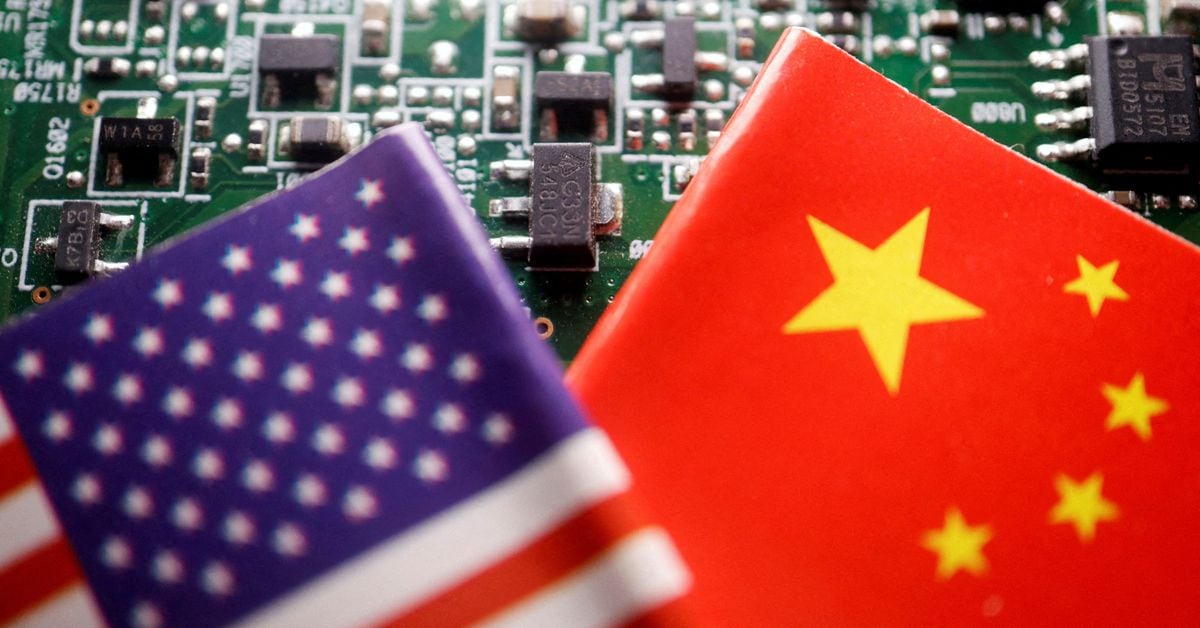Can anyone inform me regarding the purpose of preventing China from producing these more advanced chips? Is it protectionism? Is it anti-China policy? Is there some kind of particular military application?
If China can make their own advanced chips they have no reason to hold back against Taiwan.
If they are forced to make their own chips, that means they have to focus on that instead of other technologies…is an argument I’ve heard that has some merit.
China imports 70% of their chips and 90% of their most advanced chips from Taiwan, it’s called the silicon shield. China makes 16% of their chips domestically.
As long as China is dependent on Taiwan for chip manufacturing they cannot invade.
This is why China achieving chip self-reliance is such a scary prospect, the US will defend Taiwan militarily because they are also reliant on them for their chips.
Most likely it’s to prevent something like this from happening:
Likely moreso focused on government secrets than corporate ones, but same idea
Edit: Non-paywalled link:
And I’m guessing a smaller chip makes it even harder to detect. Makes sense. Thank you
Lots of reasons, Chinese knockoffs hurting US chip R&D, Chinese knockoffs with backdoors that compromise national security, lack of domestic production options which puts the US in danger of being cut off from chips at war time (and chips are used in everything from domestic devices to military devices/weapons systems).
Imagine if the Chinese government could just remote command and control some percentage of the military’s weapon systems and make them fire on the US homeland because the chips have backdoors. Or imagine if they could intercept critical military or otherwise wartime communications. Even beyond military uses, chips could be used for corporate espionage revealing trade secrets further accelerating China’s ability to create knockoff products.
Meh
US acting like world police any time some country gets to play catch up and use their rule book. The day they limit NSA scans to traffic in their own country I’ll take their claims at face value.
backdoors that compromise
nationala certain country securityFixed that for you.
In the mean time I get to “enjoy” backdoors made by both US and China.
This is the best summary I could come up with:
The 741 page annual report, released by the U.S.-China Economic and Security Review Commission, takes aim at the Biden administration’s Oct. 2022 export curbs, which seek to bar Chinese chipmakers from getting U.S. chipmaking tools if they would be used to manufacture advanced chips at the 14 nanometer node or below.
The finding comes as the United States scrambles to figure out how Chinese telecoms giant Huawei was able to produce an advanced 7 nanometer chip to power its Mate 60 Pro smartphone at China’s top chipmaker SMIC, despite the export curbs announced last year.
Huawei and SMIC were also added to a trade restriction list in 2019 and 2020, which in theory bars U.S. suppliers from shipping certain technology to the companies.
The United States managed to plug a key loophole in its efforts to stymie China’s access to advanced chipmaking tools by convincing allies Japan and the Netherlands, with similarly robust chipmaking equipment industries, to announce their own restrictions on exports of the coveted technology.
But China stockpiled equipment by taking advantage of the lagtime between the United States’ October 2022 rules, and Japan and the Netherlands’ similar moves in July and September of 2023 respectively, the report details.
The report does not outline a specific recommendation to address the gaps in the U.S. rules, but urges Congress to request an annual evaluation, to be completed within 6 months by the General Accountability Office and later made public, of the effectiveness of export controls on chipmaking equipment to China.
The original article contains 514 words, the summary contains 251 words. Saved 51%. I’m a bot and I’m open source!
deleted by creator





